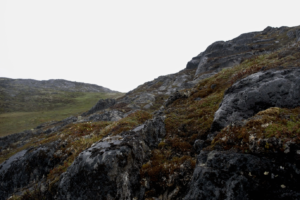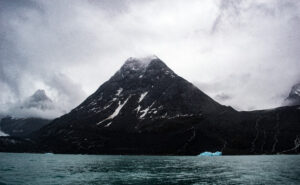 As we discuss climate change as the Climate Action Cohort, I’ve realized a whole new level of privilege. Over the past month, the Black Lives Matter movement has grown exponentially and pushed politicians to examine, defund, and dismantle police forces in multiple cities in the United States. This has been the outcome of over a month of protests around the world, all fighting against systemic racism created by corrupt carceral and law enforcement institutions. That is not to say, however, that racism has only existed since the Black Lives Matter movement began. It has been happening for more than 400 years. It’s only now that the age of information and mass social media has brought videos of police brutality to the screens we stare at daily. As a white person who is not directly affected by police brutality, I can still choose to ignore this by simply putting down my phone. That is privilege.
As we discuss climate change as the Climate Action Cohort, I’ve realized a whole new level of privilege. Over the past month, the Black Lives Matter movement has grown exponentially and pushed politicians to examine, defund, and dismantle police forces in multiple cities in the United States. This has been the outcome of over a month of protests around the world, all fighting against systemic racism created by corrupt carceral and law enforcement institutions. That is not to say, however, that racism has only existed since the Black Lives Matter movement began. It has been happening for more than 400 years. It’s only now that the age of information and mass social media has brought videos of police brutality to the screens we stare at daily. As a white person who is not directly affected by police brutality, I can still choose to ignore this by simply putting down my phone. That is privilege.
In like manner, climate change is happening. To the north of me, the highest Arctic temperatures ever are being recorded. To the South of me, islanders are losing land by the metre to rising oceans. Still, I live on Treaty 1 territory, in the literal middle of Turtle Island. It’s hot sometimes, and the Red River floods a little too high for kayaking on an annual basis. But all I need to do is turn on a fan to cool off, and wait an extra week or two to go safely kayak for pleasure. That is privilege. My actions, as a person who lives in a natural gas heated house, uses a gas-powered car, and occasionally buys clothes from a mall, affects the sea levels around islands, and raises the temperature in the Arctic. But still, there are no hurricanes on the prairies, so I can ignore it all, right?
Climate change can be tackled with policy, but that needs public support to work. For public support, awareness of the problem must be created. So, I look to current and past movements, while they create their honest dialogue in this age of information. How can you change something without realizing what’s wrong? How can you make such big changes towards climate justice if not everyone is onboard? My new challenge to myself is this. How can I create awareness of the climate chaos already affecting the communities who contribute so little to the changing climate? How can I make sure my peers look at this as an issue of humankind, not of economic growth? How can I ensure that information on the climate crisis is accessible?
I’m now remembering an early morning on the Ocean Endeavour of reading next to a starboard window overlooking  some giant and fog-encased fjord. I remember landing to explore and connect with true biodiversity – not a public park with trees and invasive grass planted where it is convenient to city dwellers – but true biodiversity and nature, almost untouched by the exploitative hand of humankind. There’s a connection anyone can feel there, whether you find it in a riverbank or a hiking trail. That connection reminds me of what’s at stake in a climate crisis. That is what reminds me to use my privilege for good, not for ignorance.
some giant and fog-encased fjord. I remember landing to explore and connect with true biodiversity – not a public park with trees and invasive grass planted where it is convenient to city dwellers – but true biodiversity and nature, almost untouched by the exploitative hand of humankind. There’s a connection anyone can feel there, whether you find it in a riverbank or a hiking trail. That connection reminds me of what’s at stake in a climate crisis. That is what reminds me to use my privilege for good, not for ignorance.
This, among others, is one lesson I have learned from my third meeting in the Climate Action Cohort. Isn’t it lovely to learn through realization and conversation? If this is the sort of knowledge I can learn from one meeting, I’m excited to see how much I take away from our in person talks, when we are unencumbered by mute buttons and poor connections. 2020 may be void of many events, but it will not be void of growth.





